

TARP – the infamous Troubled Assets Relief Program that bailed out Wall Street in 2008 – is over. The Treasury Department announced it will be completing the sale of the remaining shares it owns of the banks and of General Motors.
But in reality it’s not over. The biggest Wall Street banks are now far bigger than they were four years ago when they were considered too big to fail. The five largest have almost 44 percent of all US bank deposits.
That’s up from 37 percent in 2007, just before the crash. A decade ago they had just 28 percent.
The biggest banks keep getting bigger because they can borrow more cheaply than smaller banks. That’s because investors believe the government will bail them out if they get into trouble, rather than force them into a form of bankruptcy (as the new Dodd-Frank law makes possible).
» Read more about: It’s Time to Roll Up the Welcome TARP for Big Banks »


In 1996 I began working at the Parent Center of Wilmington Middle School. I quickly learned how students suffer from asthma, respiratory deficiencies, malnourishment, cancer and autism. Many of these poor health conditions are linked to the pollution and poverty of the area.
I decided to join the Coalition for Clean & Safe Ports, hoping to help clean our air and reduce disease in my community. Over the past several years we have made huge progress. I believe these accomplishments were possible because so many of us came together, from residents and community-based organizations to port truck drivers, lawmakers and unions. Although it is a cliché to say there is strength in unity, in this case it was true.
Today we are fighting to change the conditions of port truck drivers – and we are still unified.
We believe that everyone who works should be valued by their employer.


Expect scuffles between Jerry Brown and legislative Democrats over the governor’s budget blueprint.
California’s social services have certainly been cut to the bone during the recession. But Brown’s proposal for a balanced budget is a remarkable and critically important achievement which sends a message to the rest of the country:
That the bluest of all the big states can get its fiscal house in order. This was enabled, of course, by the modest tax increases in Prop. 30, passed by voters in November. Watch here as a buoyant and frisky Jerry Brown explains – in his own inimitable way – what this means.
California’s balanced budget is a repudiation of claims by conservatives that only Republican-led states can manage their books and grow their economies. Thirty states have Republican governors and all but six of them have legislative majorities, making possible all sorts of right-wing mayhem on worker,


As President Obama prepares to nominate his current Chief of Staff, Jack Lew, to the Treasury Secretary position, attention to Lew’s record and loopy signature is at an all-time high. Now, vigilant labor journalist Josh Eidelson has unearthed information on Lew’s pivotal role in busting the NYU grad student union.
The NYU graduate student union, which enjoyed official status from 2000 to 2005, was the only graduate student union to ever exist as a private university. Functioning as a case study for the political swings of the NLRB as well as a number of graduate student and adjunct professor organizing drives, the NYU Graduate Student Union (GSOC) has persevered as an informal organizing group regardless of official recognition.
The GSOC enjoyed support from within NYU and outside of it, and they didn’t lose their official bargaining status without a fight. Eidelson reports for Salon:
While graduate student teachers and researchers are unionized at many public universities,


Every year millions of Americans are victims of what some call wage theft — a practice in which a company fails to compensate workers for their time, short-changes them on their benefits or intentionally misclassifies employees in order to save money. And even though all that is illegal, Kim Bobo, executive director of Interfaith Worker Justice and author of Wage Theft in America, says it’s surprisingly common in the U.S.
“Minimum wage and overtime violations are two of the most common ways that wage theft occurs. Another way is payroll fraud, when employers intentionally call people independent contractors when they are really employees. Now if your boss — not you — declares you an independent contractor, you probably aren’t one. Then there is also tip stealing. About 10 percent of tipped workers actually don’t get their tips; their employers just don’t give it to them,” says Bobo.


A federal judge Thursday ordered Walmart to be included in a lawsuit filed by warehouse workers embroiled in a labor dispute with employers contracted by the retail giant. In downtown Los Angeles, United States District Court Judge Christina A. Snyder denied Walmart’s request to be excluded from the case (Carrillo v. Schneider Logistics, Inc.), which began litigation in October, 2011. At that time, several warehouse employees in Mira Loma filed suit against Schneider Logistics, Inc., Premier Warehousing Ventures, Rogers-Premier Unloading Services and Impact Logistics, Inc. for alleged violations of federal and state labor laws.
Walmart had argued that the plaintiffs had waited too long before seeking to include Walmart as a defendant. This delay, Walmart claimed, placed the company in the unfair position of having little time to catch up with discovery evidence and to prepare for an anticipated plaintiff class-action motion later this month. The Bentonville, Arkansas corporation also argued against inclusion in the suit because Walmart is not the warehouse workers’ employer.
» Read more about: Warehouse Workers Win New Round in Walmart Case »

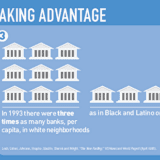
Infographic Source: ACLU and aclu.org’s “Big Profits, Broken Dreams”
» Read more about: How Banks Subprimed Black and Latino Morgtages »
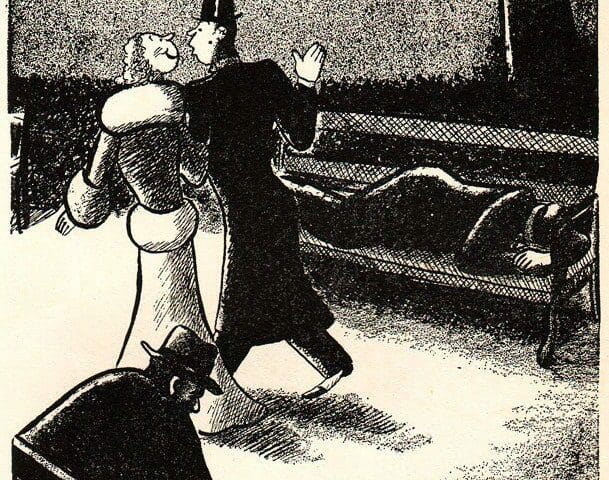

How much do the newly enacted tax hikes on the wealthiest Americans actually affect them? Hardly at all.
Almost all of the debate that convulsed Capitol Hill in December concerned the reinstatement of the highest marginal tax rate on earned income — that is, on wages and salaries. But as Fitzgerald said, the rich are different from you and me, and one of the primary ways they’re different is that they don’t get their income from wages and salaries.
In 2006, the bottom four-fifths of U.S. tax filers got 82 percent of their income from wages and salaries, a Congressional Research Office study found. The richest 1 percent, however, got just 26 percent of their income that way; for the richest one-tenth of 1 percent, the figure is just 18.6 percent.
The study also looked at dividends and capital gains. The bottom four-fifths got just 0.7 percent of their income from those sources.


The news today [January 4] from the Bureau of Labor Statistics is that the U.S. job market is treading water.
The number of new jobs created in December (155,000), and percent unemployment (7.8), were the same as the revised numbers for November.
Also, about the same number of people are looking for work (12.2 million), with additional millions too discouraged even to look.
Put simply, we’re a very long way from the job growth we need to get out of the gravitational pull of the Great Recession. That would be at least 300,000 new jobs per month.
All of which means job growth and wage growth should be the central focus of economic policy, not deficit reduction.
Yet all we’re hearing from Washington — and all we’re likely to hear as Republicans and Democrats negotiate over raising the debt ceiling — is how to cut the deficit.
» Read more about: Jobs Must Be Our Goal, Not Deficit Reduction »


According to the New York Times’ DealBook page, insurance giant American International Group announced today it will not join a shareholder lawsuit against the same federal government that had rescued it from extinction during the 2008 financial meltdown.
The suit, led by former AIG CEO Maurice R. Greenberg, is seeking $25 billion, alleging that the government’s “onerous” bailout terms prevented shareholders from making billions of dollars as the company emerged from its financial coma.
The Times noted that “A.I.G. directors faced a difficult choice.” That’s putting it mildly, as AIG found itself confronted by a PR firestorm in the days leading up to its decision, when both public and congressional outrage mounted over the company’s possible involvement in the suit. If the company joined the suit, it would have looked like the man who sues the fire department that saved him from a burning home but didn’t return to fetch his stamp collection.
» Read more about: AIG on Suing U.S. Government: “Never Mind” »
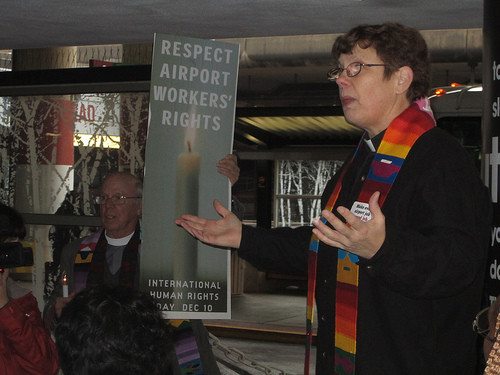
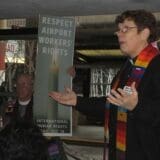
December 12 marked the 65th anniversary of the United Nations’ Universal Declaration of Human Rights. Probably most of us think first of human rights on the political level: the rights of people, especially of political prisoners across the world, to speak, assemble and write, free of government constraint.
In Seattle a group of about 100 workers, community, labor and faith leaders celebrated Human Rights Day at Seattle International Airport (SEATAC) in a different context. We were there in support of airport workers subcontracted by Alaska Airlines, which is based here: baggage handlers, wheelchair operators, cabin cleaners and aircraft fuelers. As we paraded by the Alaska ticket counters we adapted and chanted phrases of the U.N. Declaration: “…May everyone have the right to just wages…May everyone have the right to human dignity.
Socrates, a baggage ramp employee who works for Menzies Aviation, the subcontractor (and a multinational company that contracts with airlines in 29 countries),
» Read more about: Restless in Seattle: Airport Workers Seek Dignity »


There’s a moment in Mordecai Richler’s novel, The Apprenticeship of Duddy Kravitz, in which a Montreal old-timer rapturously recalls the early rise of a shady neighborhood businessman:
“All that time he’s collecting streetcar transfers off the street and selling them, see. Nerve? Nerve.”
Yesterday Americans began reading about a different kind of business nerve. According to the New York Times and other sources, American International Group, the insurance titan and poster child for government bailouts of the financial sector, is considering suing the very government that loaned it $182 billion. AIG’s legal thinking is that, while it was all very good of the Treasury Department and Federal Reserve Bank of New York to come to its rescue, the terms of that rescue inflicted unfairly high losses on the company’s shareholders.
All this comes during a publicity campaign in which AIG has been thanking Americans for saving its skin during the 2008 economic meltdown that led to a long recession.
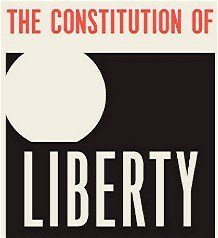

Progressive commenters reeling from the “right to work” defeat in Michigan have in turns unmasked and (grudgingly) admired proponents of the new law. The unmasking is fairly easy. Michigan governor Rick Snyder actually unmasked himself. After claiming that he was a moderate who would avoid polarizing fights, he pounced on the opportunity to jam “right to work” through a lame duck legislative session. And the policy itself is not hard to expose. “Right to work” is portrayed by proponents as freeing unwilling workers from paying union dues. But as many critics have pointed out, its wealthy proponents’ main purpose is to hobble labor by allowing some workers not to pay for the representation and protection unions are legally obligated to provide them.
As for the admiration, well, there is much to be learned from the planning and persistence of the rich donors and think tanks for whom spreading “right to work” laws beyond the former Confederacy has long been an aspiration.


“From the Ground Up” (or FTGU) is a new monthly video collaboration between LAANE’s Construction Careers Project and the UCLA Labor Center’s California Construction Academy (CCA). This series will show the fascinating, real-life stories related to construction, one of the best paths to middle-class opportunities for low-income communities in an era of globalization and education budget cuts.
FTGU will be profiling unique, diverse individuals within the construction trades, ranging from veterans to women to former convicts to youth of different incomes and ethnicities. We will also bring together experts on the construction industry, urban planners, economic theorists and others to look at the bigger picture of how construction jobs that build tomorrow’s public infrastructure can impact residents’ lives and, ultimately, our economy.
In this first video we interview Philip and Rich, two former veterans-turned-construction workers in Inglewood and Lakewood. Philip’s military experience and kids led him to sheet metal work, which has helped him find a greater sense of inner peace.
» Read more about: Vets: Be All You Can Be With Construction Jobs »
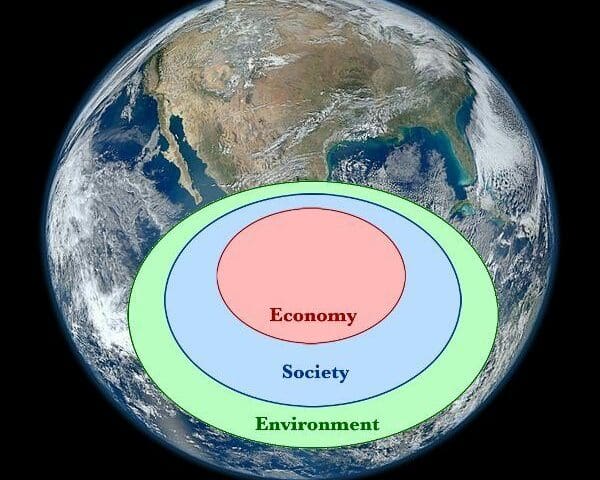

Turning over the calendar makes me think about nature. Partly, because it marks the end of one cycle of our lives and the beginning of another. Partly because at our house we literally take one calendar off the wall, look through its photographs of beautiful places, and replace it with a new one with its own photos of the world’s natural beauty that we will uncover one month at a time. The ritual reminds me that the earth is filled with beauty which we humans must sustain because it sustains us.
The problem, of course, is that in our drive for “progress” and “economic growth” we are drawing down too many resources too fast and making messes despoiling not only the earth’s beauty but also her capacity to keep us alive. Every day the news carries stories of waste, trash, unhealthy water, shrinking arctic ice and aberrant weather patterns.
» Read more about: A Sustainable Planet: Roadmaps for Survival »


UNITE HERE!-represented workers at Pleasanton, California’s Castlewood Country Club were locked out for two years before an NLRB administrative law judge finally ruled in their favor; Castlewood was on the hook for $1.8 million in back wages and benefits due to management’s refusal to bargain in good faith and animus towards the union. Overjoyed, 45 of 61 locked out Castlewood employees returned to their jobs. There’s just one problem: they haven’t gotten their back wages yet.
The NLRB’s ruling requires Castlewood management to pay back wages within 28 days or make some other settlement with workers, but as of late December, neither had occured. Castlewood management does have the opportunity to appeal the NLRB ruling, but lacks the option of total inaction. The failure to act had workers returning to a now-familiar mode of protest on the Thursday before Christmas. The East Bay Express was on the scene:
About 30 union members gathered Thursday morning outside Castlewood’s offices to urge management to pay up.
» Read more about: Teed-Off Workers Protest at Golf Course »


The cliff that America sidestepped with time to spare in 2012 was the one on the nation’s docks. On Friday, harbor operators and shippers reached an agreement with the union representing nearly 15,000 longshoremen on the East and Gulf coasts. The key point holding up the signing of a new contract was whether dockworkers would continue to receive royalties on the containers they hoisted on and off ships. With that issue resolved, apparently to the workers’ satisfaction, their union agreed to call off a year-end strike pending the resolution of less contentious points, and the nation was spared a work stoppage that would have slowed imports and exports to a relative trickle.
Had the workers walked, the attacks on them would be easy to imagine. Dockworkers are among this country’s best-paid blue-collar workers; many make more than $100,000 a year. They’re sitting ducks for union critics and are objects of wonderment for many Americans who can’t fathom how nonprofessional work can pay so much.
» Read more about: New Longshore Contract: Racing to the Top »


As a nation, we’ve already given countless billions of dollars in gifts to the one percent in the form of tax cuts, loopholes and corporate subsidies. If you think that’s not enough, here’s a list of more personal gifts you can buy for your favorite One Percenter.
In the 21st century, even the lowliest One Percenter can surround himself or herself with personal assistants, stylists and specialty chefs. For a truly unique experience, add a personal tanning butler to his or her entourage on a $3000/night booking at the Ritz Carlton. Even the dullest One Percenter will take a shining to this gift. The tanning butler will help apply sunbathing lotion and spritz you with Evian water while you sunbathe.
If your one percent friend is an expecting celeb,
» Read more about: Regifting for the Few Who Have Everything »


Most job seekers take care to scrub evidence of last night’s party from their social media profiles, but the employment consequences of more nuanced online interactions are still being determined. Just before the Christmas holiday, the National Labor Relations Board issued a decision ordering the reinstatement of five workers who were fired for responding to a co-worker’s criticism on Facebook. The decision goes some way to establish Facebook posts as protected under the National Labor Relations Act, and may discourage employers from basing personnel decisions on social media behavior in the future.
JD Supra reports on the case:
The case stemmed from a message that an employee of a nonprofit organization posted on Facebook outside of work hours. After Lydia Cruz-Moore told Marianna Cole-Rivera that she planned to discuss her concerns about employee performance with the Executive Director of Hispanics United of Buffalo, Inc.
» Read more about: NLRB Likes Facebook Defense of Fired Workers »


» Read more about: You Can’t Always Get What You Want: Post-Cliff Reactions »